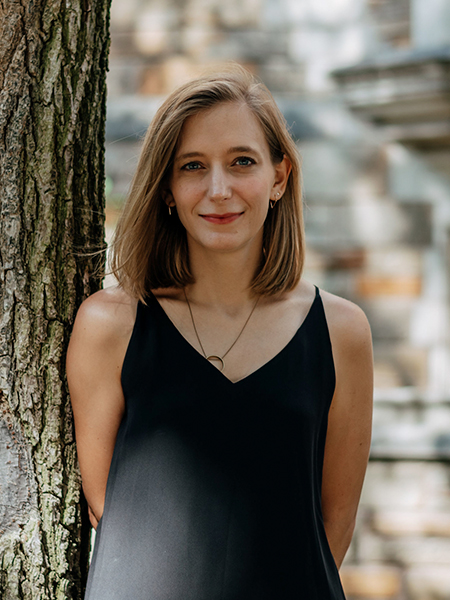
Faculty Profiles
CURRENT FACULTY
Myrdene Anderson, Professor
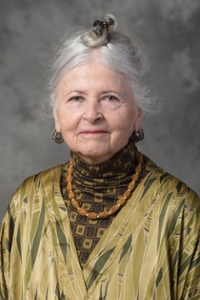 Dr. Anderson is best known for the research among Saami reindeer-breeders in Norwegian Lapland that commenced in 1971 and continues to date. She also pursues ethnography in a variety of settings, from community gardening to the transdisciplinary artificial life movement in biology. Her publications include edited volumes on human-alloanimal ethology, on ethnicity and identity, on semiotic modeling, on the cultural construction of trash, on mathematics education, on violence, and on the Peircean concept of “habit”.
Dr. Anderson is best known for the research among Saami reindeer-breeders in Norwegian Lapland that commenced in 1971 and continues to date. She also pursues ethnography in a variety of settings, from community gardening to the transdisciplinary artificial life movement in biology. Her publications include edited volumes on human-alloanimal ethology, on ethnicity and identity, on semiotic modeling, on the cultural construction of trash, on mathematics education, on violence, and on the Peircean concept of “habit”.
Melanie Beasley, Assistant Professor
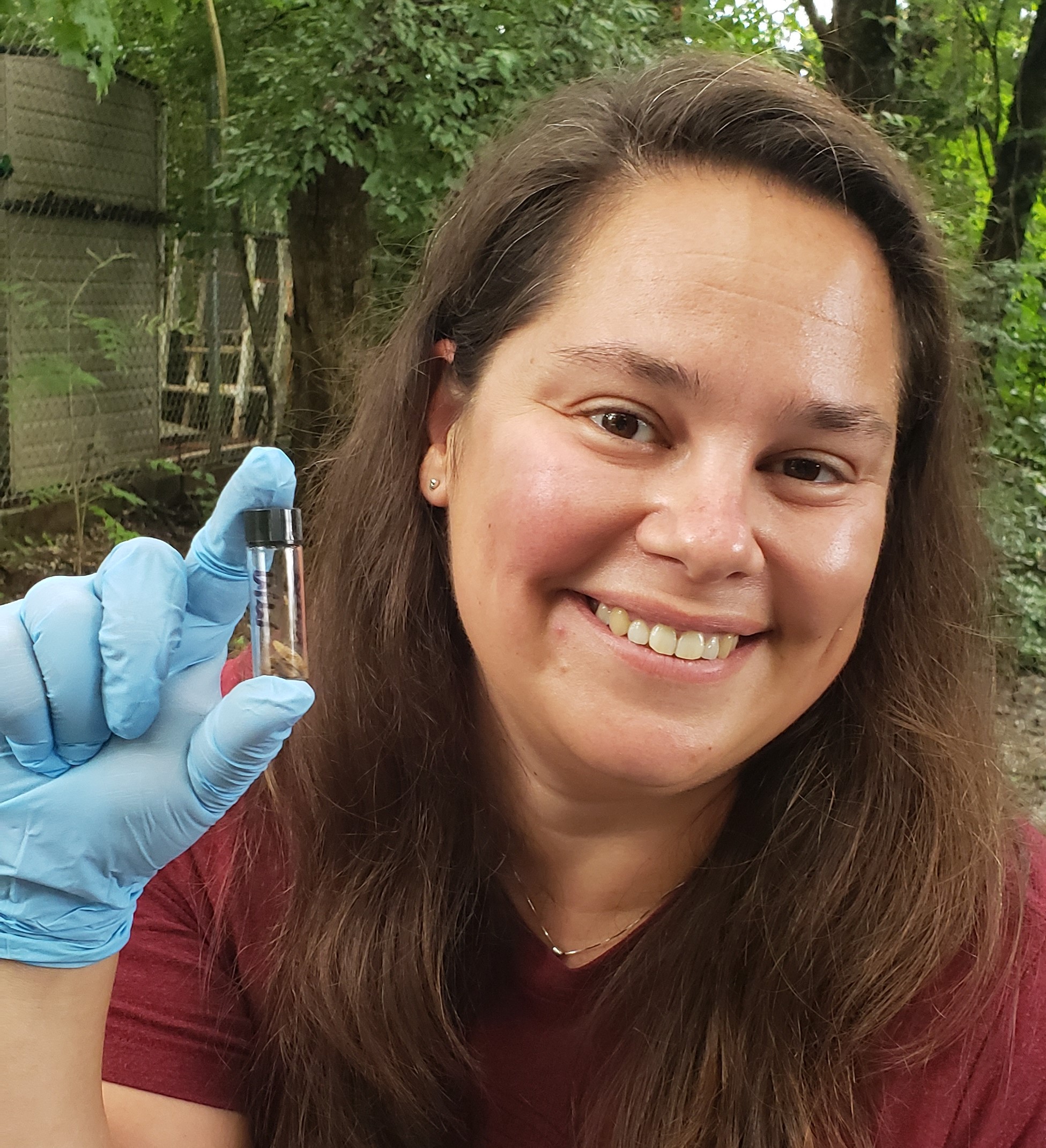 As a biological anthropologist, Dr. Beasley is broadly interested in human-environment interactions of the past and present. She uses stable isotope geochemistry in innovative ways to connect humans and the environments in which they live to understand changing climate, resource availability, and life history. Her research projects in East Africa, California, and Italy span the last 4 million years of time. Aside from her paleoanthropological and bioarchaeological scholarship, Beasley also uses stable isotope analysis for forensic applications to aid in identification of unknown human remains and determine time since death.
As a biological anthropologist, Dr. Beasley is broadly interested in human-environment interactions of the past and present. She uses stable isotope geochemistry in innovative ways to connect humans and the environments in which they live to understand changing climate, resource availability, and life history. Her research projects in East Africa, California, and Italy span the last 4 million years of time. Aside from her paleoanthropological and bioarchaeological scholarship, Beasley also uses stable isotope analysis for forensic applications to aid in identification of unknown human remains and determine time since death.
Sherylyn Briller, Professor
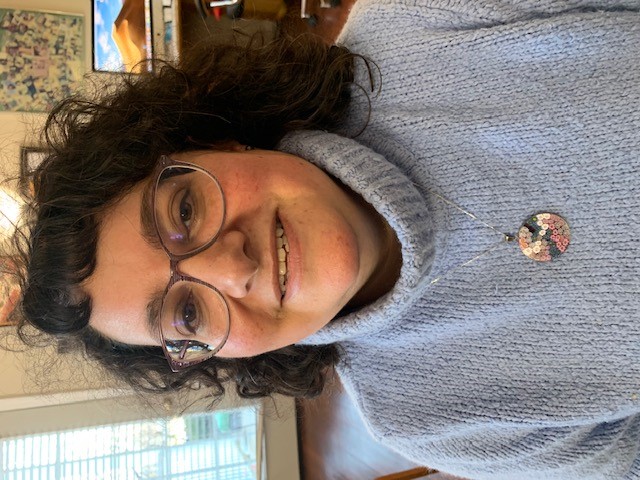 Dr. Sherylyn Briller is a cultural medical anthropologist specializing in aging, disability, end-of-life issues, and global health. She has conducted research in Mongolia and the United States. She is a Faculty Associate in the Center on Aging and the Life Course. Her professional interests also extend to anthropologists’ education, career development, and interdisciplinary collaboration. She has taken a leading role in developing the new Master’s track in Applied and Practicing Anthropology at Purdue.
Dr. Sherylyn Briller is a cultural medical anthropologist specializing in aging, disability, end-of-life issues, and global health. She has conducted research in Mongolia and the United States. She is a Faculty Associate in the Center on Aging and the Life Course. Her professional interests also extend to anthropologists’ education, career development, and interdisciplinary collaboration. She has taken a leading role in developing the new Master’s track in Applied and Practicing Anthropology at Purdue.
Michele Buzon, Professor
Website
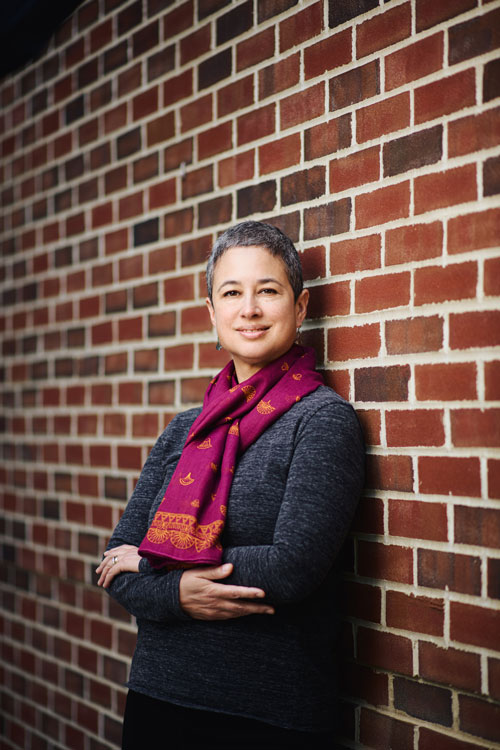 Dr. Buzon is a bioarchaeologist whose research focuses on the excavation and analysis of burials in the ancient Nile Valley (Egypt and Nubia). Dr. Buzon has an active field site at Tombos, Sudan. Through the examination of human skeletal remains and mortuary practices, she examines the effects of Nubian-Egyptian contact on identity and health during the New Kingdom and Napatan periods.
Dr. Buzon is a bioarchaeologist whose research focuses on the excavation and analysis of burials in the ancient Nile Valley (Egypt and Nubia). Dr. Buzon has an active field site at Tombos, Sudan. Through the examination of human skeletal remains and mortuary practices, she examines the effects of Nubian-Egyptian contact on identity and health during the New Kingdom and Napatan periods.
Kory Cooper, Associate Professor
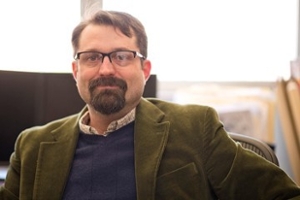 Dr. Cooper uses a Behavioral Archaeology framework to examine technological innovation and culture change past and present. One of his primary research foci has been the archaeometallurgical investigation of Pre-Contact copper innovation in the North American Arctic, Subarctic and Northwest Coast. Related to this topic, Cooper’s research also examines the Post-Contact adoption of trade metals and metallurgy in these culture areas. He is also currently participating in interdisciplinary research on the consumption and discard of electronics (e-waste). He has conducted fieldwork in Alaska, California, Jordan, and Sudan. Additional research interests include materials analysis, experimental archaeology, hunter-gatherers, the fur trade, historical metallurgy, public archaeology, and education.
Dr. Cooper uses a Behavioral Archaeology framework to examine technological innovation and culture change past and present. One of his primary research foci has been the archaeometallurgical investigation of Pre-Contact copper innovation in the North American Arctic, Subarctic and Northwest Coast. Related to this topic, Cooper’s research also examines the Post-Contact adoption of trade metals and metallurgy in these culture areas. He is also currently participating in interdisciplinary research on the consumption and discard of electronics (e-waste). He has conducted fieldwork in Alaska, California, Jordan, and Sudan. Additional research interests include materials analysis, experimental archaeology, hunter-gatherers, the fur trade, historical metallurgy, public archaeology, and education.
Risa Cromer, Associate Professor
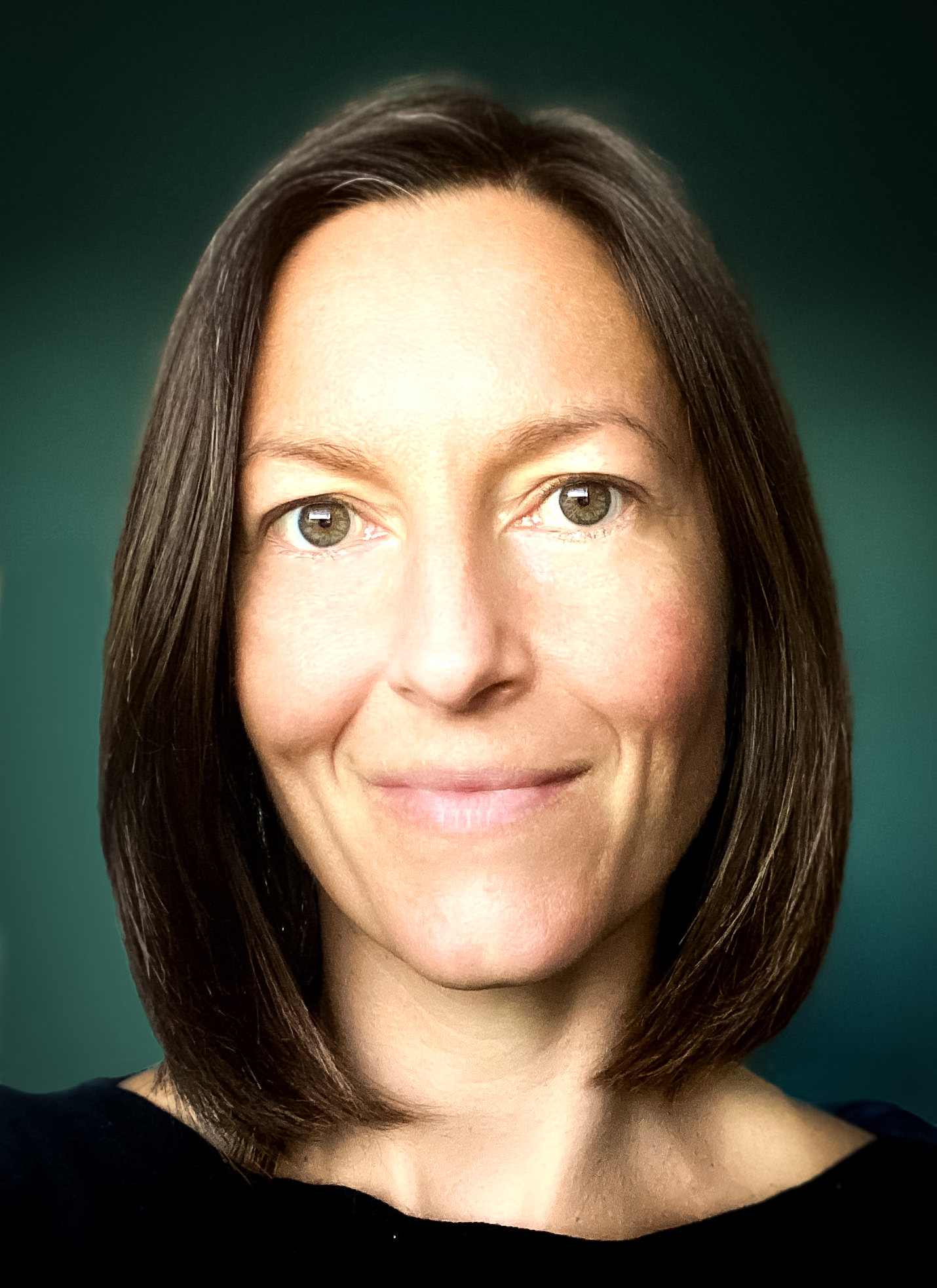 Dr. Cromer is an anthropologist of biomedicine and feminist science and technologies scholar whose research investigates the intersections of reproductive medicine, technologies, and politics in the United States. Her current works brings ethnographic attention to bioethical, legal, and political controversies concerning the fates of frozen human embryos left over from in vitro fertilization procedures. Her field sites span medical clinics, research laboratories, service agencies, and social movement organizations, among others. Intersectional analyses of the inextricable ties between gender, race, disability, sexuality, and class are fundamental to her scholarship, mentorship, and teaching. In her applied work, she contributes to team research projects on mental health services for veterans and grassroots efforts around reproductive justice.
Dr. Cromer is an anthropologist of biomedicine and feminist science and technologies scholar whose research investigates the intersections of reproductive medicine, technologies, and politics in the United States. Her current works brings ethnographic attention to bioethical, legal, and political controversies concerning the fates of frozen human embryos left over from in vitro fertilization procedures. Her field sites span medical clinics, research laboratories, service agencies, and social movement organizations, among others. Intersectional analyses of the inextricable ties between gender, race, disability, sexuality, and class are fundamental to her scholarship, mentorship, and teaching. In her applied work, she contributes to team research projects on mental health services for veterans and grassroots efforts around reproductive justice.
Dada Docot, Assistant Professor
Website
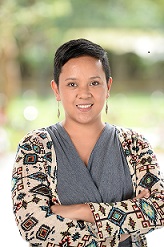 Dr. Docot is a cultural anthropologist whose works center on Filipino overseas migration. Her current book project presents an ethnographic account of everyday life in the so-called “Town of Dollars,” her hometown located in the Southeast part of Luzon Island, Philippines, that has been radically changed by overseas mobilities. She is committed to expanding conversations on the postcolonial condition that is fatigued by multiple histories of colonization, enduring precarity, and growing global inequality. While at New York University Shanghai, Dada began her research on Filipino teachers in China in the context of the changing relationship between China and the Philippines.
Dr. Docot is a cultural anthropologist whose works center on Filipino overseas migration. Her current book project presents an ethnographic account of everyday life in the so-called “Town of Dollars,” her hometown located in the Southeast part of Luzon Island, Philippines, that has been radically changed by overseas mobilities. She is committed to expanding conversations on the postcolonial condition that is fatigued by multiple histories of colonization, enduring precarity, and growing global inequality. While at New York University Shanghai, Dada began her research on Filipino teachers in China in the context of the changing relationship between China and the Philippines.
Elizabeth Eklund, Lecturer
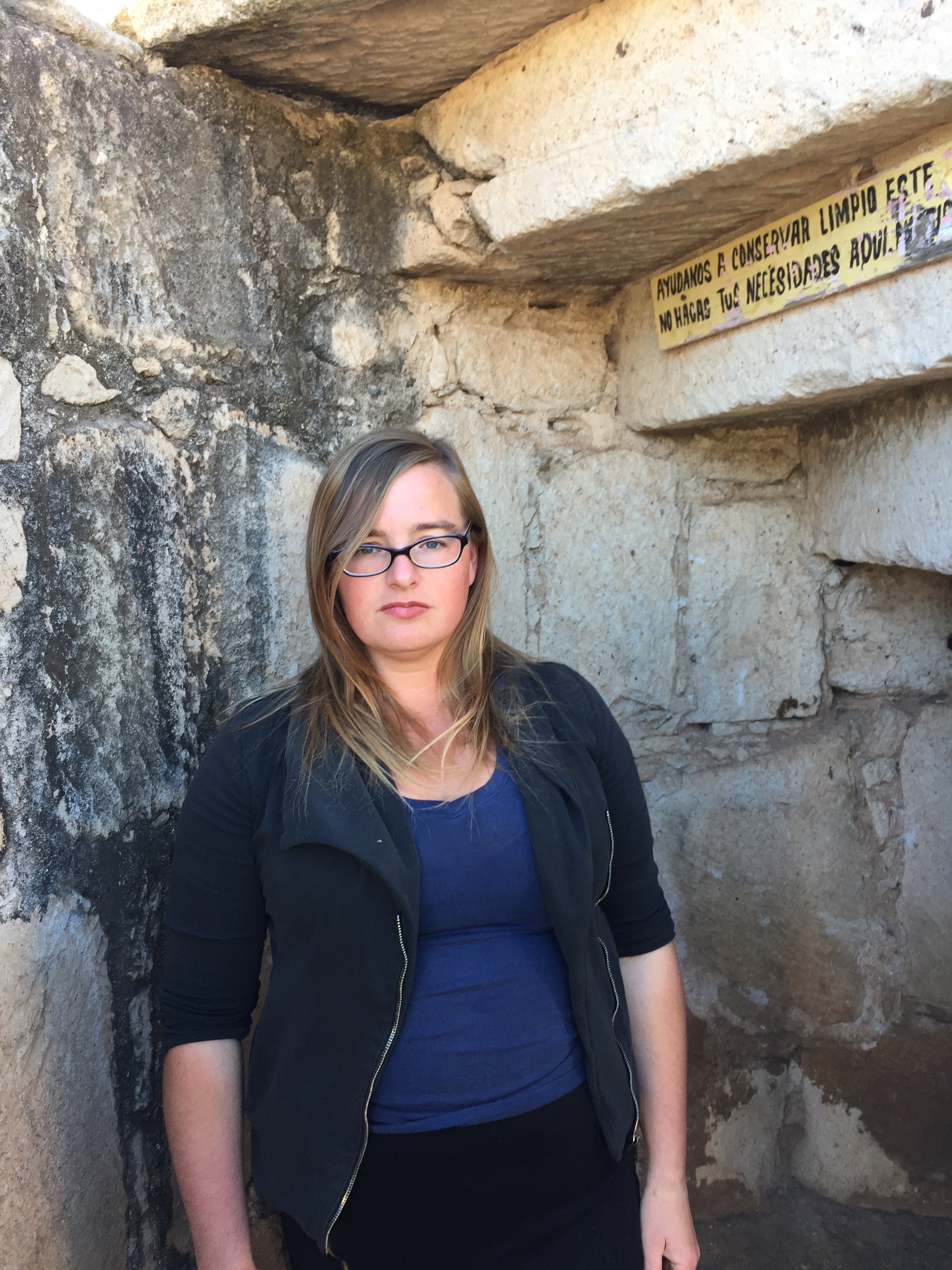
Dr. Eklund is an environmental anthropologist / political ecologist focused on the intersection of nature and culture. These include topics like water and cultural memory; scenic and federally protected areas, and land and climate justice. Her research shows cultural persistence in the face of oppression and disaster. Her current work centers on issues of land and climate justice in resource constrained societies as those who are the most vulnerable to climate change impacts.
Andrew Flachs, Associate Professor
Website
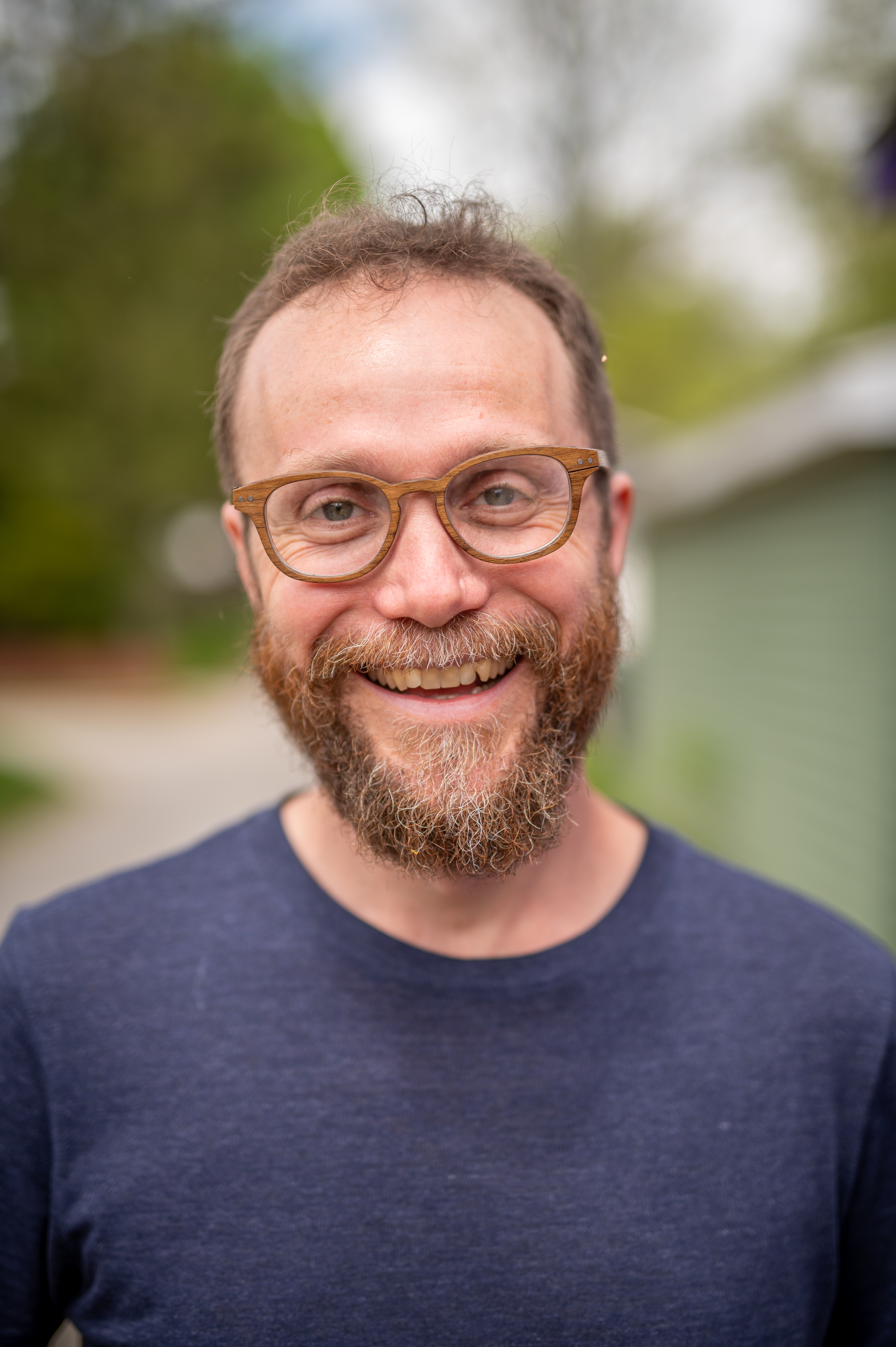 Dr. Flachs researches food and agriculture systems, exploring the spread of genetically modified crops, heirloom seeds and local ecologies, alternative agriculture, and small-scale food security including fermentation and seed-saving. His work among farmers in North America, the Balkans, and South India investigates ecological knowledge and technological change in agricultural systems spanning Cleveland urban gardens, Bosnian kitchens, and Indian GM cotton fields. At Purdue, he is a member of the Advanced Methodologies Cluster and teaches graduate courses on qualitative social science and environmental anthropology.
Dr. Flachs researches food and agriculture systems, exploring the spread of genetically modified crops, heirloom seeds and local ecologies, alternative agriculture, and small-scale food security including fermentation and seed-saving. His work among farmers in North America, the Balkans, and South India investigates ecological knowledge and technological change in agricultural systems spanning Cleveland urban gardens, Bosnian kitchens, and Indian GM cotton fields. At Purdue, he is a member of the Advanced Methodologies Cluster and teaches graduate courses on qualitative social science and environmental anthropology.
Ian Lindsay, Associate Professor
Website
 Dr. Lindsay has conducted research in northwestern Armenia since 2000 investigating the origins of political complexity, landscapes as media for political authority, and households and community formation in the Late Bronze Age. Analytical methods of interest include chemical characterization techniques to examine the flow of goods in and out of the Tsaghkahovit Plain, and he has recently initiated a geophysical survey of fortress settlements to gauge the intensity of occupation during the LBA.
Dr. Lindsay has conducted research in northwestern Armenia since 2000 investigating the origins of political complexity, landscapes as media for political authority, and households and community formation in the Late Bronze Age. Analytical methods of interest include chemical characterization techniques to examine the flow of goods in and out of the Tsaghkahovit Plain, and he has recently initiated a geophysical survey of fortress settlements to gauge the intensity of occupation during the LBA.
Stacy Lindshield, Associate Professor
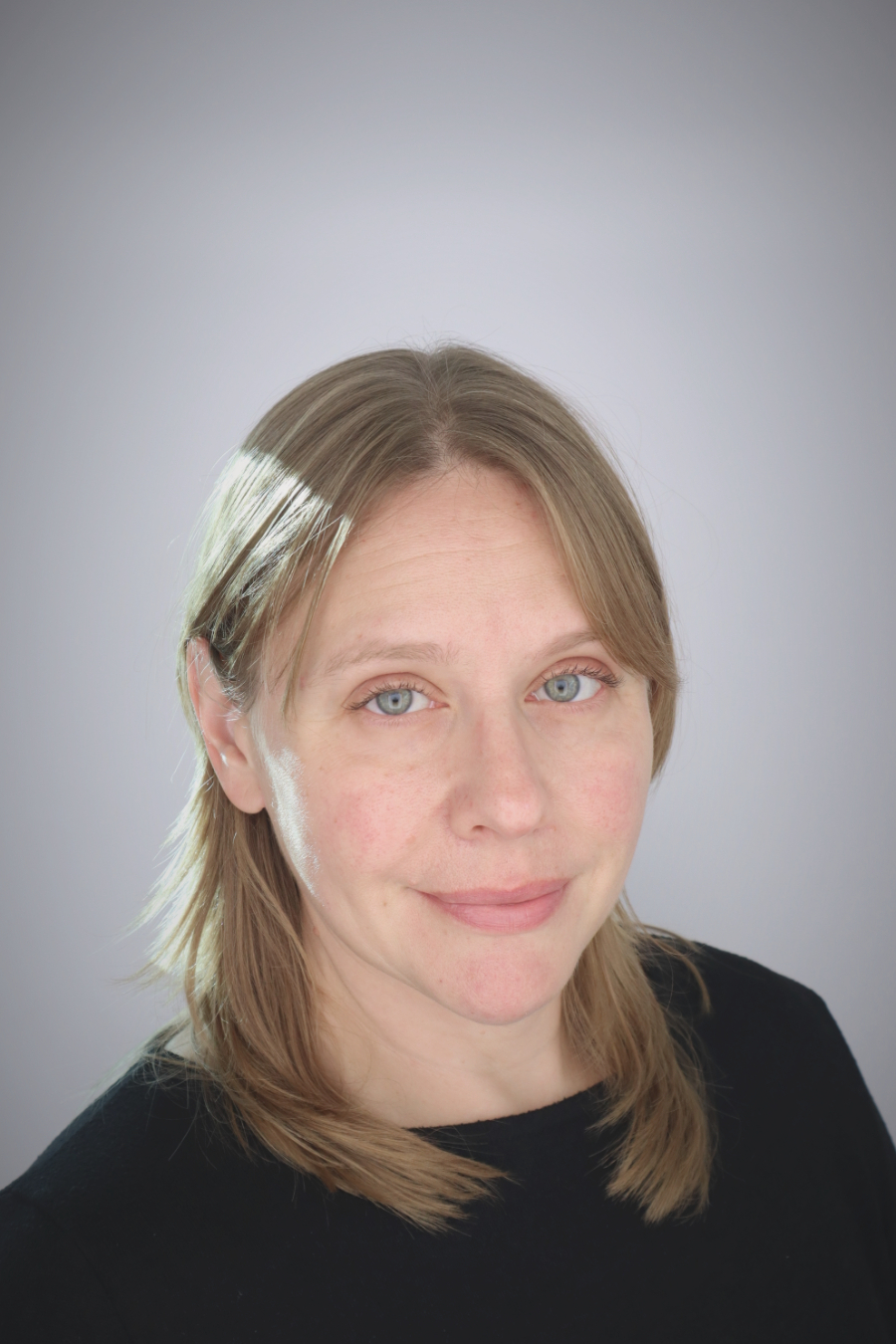 Dr. Lindshield’s research investigates how and why foraging behavior reflects the sociopolitical strategies of female chimpanzees in savanna-woodland environments. Professor Lindshield has active research projects in Senegal at Mount Assirik in Niokolo-Koba National Park and Fongoli. Her current work addresses nutritional facets of hunting, meat eating, and meat sharing behaviors. In addition, Lindshield assesses the impact of gold mining on biological corridors and chimpanzee health in Senegal, and evaluates biological corridor networks for the conservation and management of Costa Rican primates.
Dr. Lindshield’s research investigates how and why foraging behavior reflects the sociopolitical strategies of female chimpanzees in savanna-woodland environments. Professor Lindshield has active research projects in Senegal at Mount Assirik in Niokolo-Koba National Park and Fongoli. Her current work addresses nutritional facets of hunting, meat eating, and meat sharing behaviors. In addition, Lindshield assesses the impact of gold mining on biological corridors and chimpanzee health in Senegal, and evaluates biological corridor networks for the conservation and management of Costa Rican primates.
Zoe Nyssa, Associate Professor
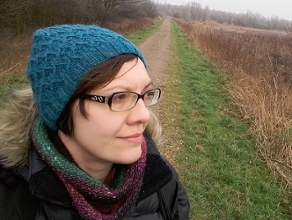 Dr. Nyssa is a cultural/environmental anthropologist studying the relationships between knowledge practices, governance, and distributive questions of risk and justice. Using mixed method and multi-sited approaches, her current work tracks the emergence and contemporary practices of conservation science in order to evaluate their impact globally on human and non-human life. She has conducted research at leading conservation projects in the U.S., Europe, and Ecuador.
Dr. Nyssa is a cultural/environmental anthropologist studying the relationships between knowledge practices, governance, and distributive questions of risk and justice. Using mixed method and multi-sited approaches, her current work tracks the emergence and contemporary practices of conservation science in order to evaluate their impact globally on human and non-human life. She has conducted research at leading conservation projects in the U.S., Europe, and Ecuador.
Erik Otárola-Castillo, Associate Professor
Website
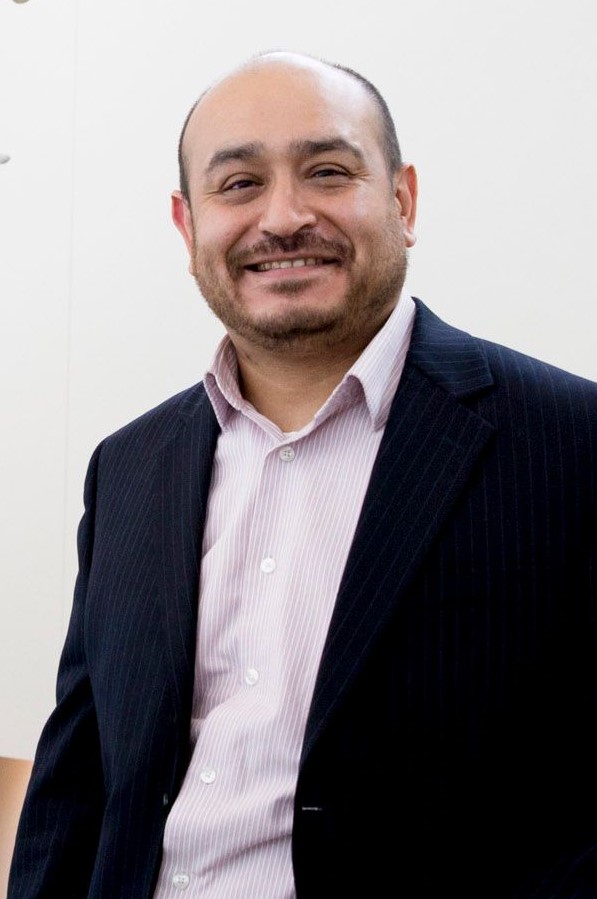 Dr. Otárola-Castillo is an archaeologist, human evolutionary biologist, and biometrician. His research revolves around the question: “What do people eat and why?” To answer it, Dr. Otárola-Castillo studies the diversity, ecology, evolution, and co-evolution of behavioral phenotypes in prehistoric and modern foraging populations. Currently, Dr. Otárola-Castillo is interested in evaluating the effects that climatic change, the variation of food-availability and-distribution had on the diet of some of the first forager populations across the North American Great Plains.
Dr. Otárola-Castillo is an archaeologist, human evolutionary biologist, and biometrician. His research revolves around the question: “What do people eat and why?” To answer it, Dr. Otárola-Castillo studies the diversity, ecology, evolution, and co-evolution of behavioral phenotypes in prehistoric and modern foraging populations. Currently, Dr. Otárola-Castillo is interested in evaluating the effects that climatic change, the variation of food-availability and-distribution had on the diet of some of the first forager populations across the North American Great Plains.
As a biometrician and computational anthropologist, he develops quantitative tools to answer questions in the context of the major dimensions of archaeological research: space, time and form. To this end, Dr. Otárola-Castillo develops and implements optimal foraging models, 3D-morphometrics software, and statistical software for human evolutionary biologists and zooarchaeologists, spatio-temporal statistical models, and Geographic Information Systems (GIS)."
Melissa Remis, Professor and Head
Website
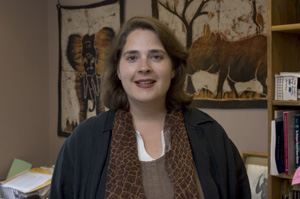 Dr. Remis’ research in the Central African Republic focuses on integrated biological, cultural and environmental anthropological approaches to human-animal relationships, nutrition, and health among BaAka foragers, and conservation. She is currently studying multispecies entanglements and interdependence in Congo Basin forests. She has also conducted research on the feeding ecology of western gorillas and designed experimental zoo-based research on the evolution of feeding strategies among African apes.
Dr. Remis’ research in the Central African Republic focuses on integrated biological, cultural and environmental anthropological approaches to human-animal relationships, nutrition, and health among BaAka foragers, and conservation. She is currently studying multispecies entanglements and interdependence in Congo Basin forests. She has also conducted research on the feeding ecology of western gorillas and designed experimental zoo-based research on the evolution of feeding strategies among African apes.
Sarah Renkert, Assistant Professor
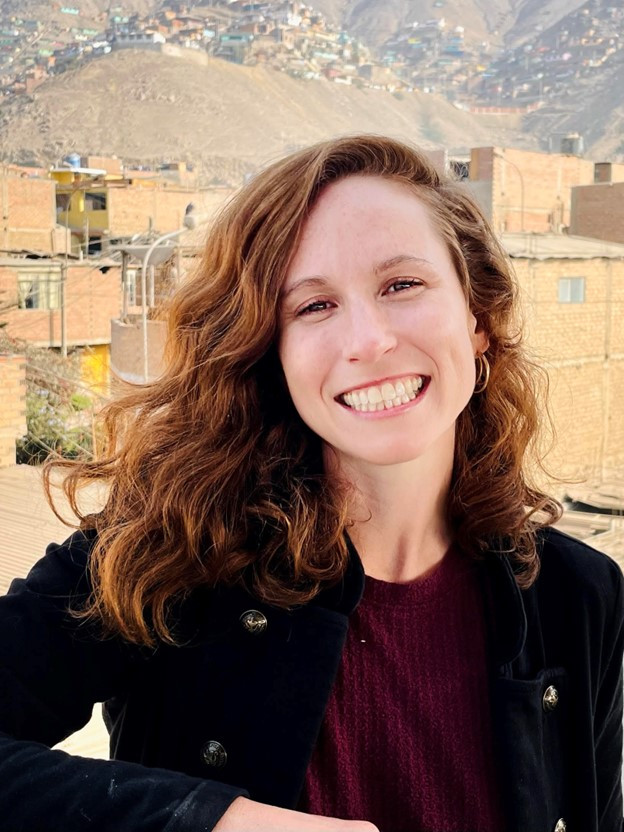 Dr. Sarah Renkert is an applied cultural anthropologist specializing in community-based participatory research, critical food studies, and political economy. Renkert’s current research focuses on the politics of food aid and community organization in Huaycán, Lima, Peru. She has also researched food security, diaper need, community-owned tourism, and Indigenous land protection and representation in the U.S. Southwest and the Ecuadorian Amazon. At Purdue, Renkert is working with the Space for Practice Lab, which serves as a campus and community center for collaborative anthropological praxis.
Dr. Sarah Renkert is an applied cultural anthropologist specializing in community-based participatory research, critical food studies, and political economy. Renkert’s current research focuses on the politics of food aid and community organization in Huaycán, Lima, Peru. She has also researched food security, diaper need, community-owned tourism, and Indigenous land protection and representation in the U.S. Southwest and the Ecuadorian Amazon. At Purdue, Renkert is working with the Space for Practice Lab, which serves as a campus and community center for collaborative anthropological praxis.
Kali Rubaii, Assistant Professor

Kali Rubaii is an assistant professor in the Department of Anthropology at Purdue University. Her research focuses on displacement, war-impacted ecologies, and environmental health justice. Through forensic ethnography, Dr. Rubaii’s work bears witness to the violent material impact of extractive industry and war on people’s lives. She is currently leading two interdisciplinary projects: She is working with a team of doctors, epidemiologists, and environmental activists to document the links between birth anomalies and military environmental damage in Fallujah, Iraq. She is also researching concrete production in post-invasion Iraq as it enforces global regimes of class and citizenship. For more details, visit kalirubaii.com.
Savannah Schulze, Lecturer

Ben Schoville, Associate Professor
Amanda Veile, Associate Professor
Website
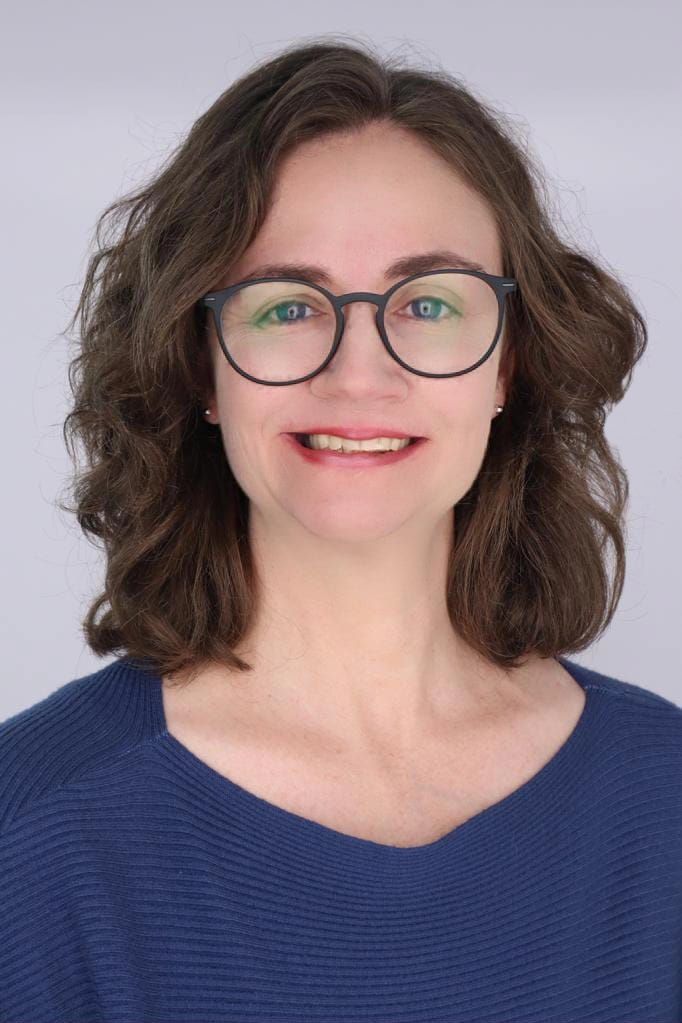 Dr. Veile is a biological anthropologist who studies human reproductive and developmental biology using an evolutionary perspective. Since 2000, she has worked as a scientist on indigenous health projects in Bolivia, Venezuela, and Mexico. Her ongoing research projects include 1) Documentation of birthing practices, breastfeeding patterns, and mother-child interactions; 2) Studies of growth and immuno-nutritional development of indigenous infants and children; and 3) Monitoring community health profiles in geographically isolated populations, to identify novel health challenges associated with globalization and modernization.
Dr. Veile is a biological anthropologist who studies human reproductive and developmental biology using an evolutionary perspective. Since 2000, she has worked as a scientist on indigenous health projects in Bolivia, Venezuela, and Mexico. Her ongoing research projects include 1) Documentation of birthing practices, breastfeeding patterns, and mother-child interactions; 2) Studies of growth and immuno-nutritional development of indigenous infants and children; and 3) Monitoring community health profiles in geographically isolated populations, to identify novel health challenges associated with globalization and modernization.
Elizabeth Wirtz, Lecturer
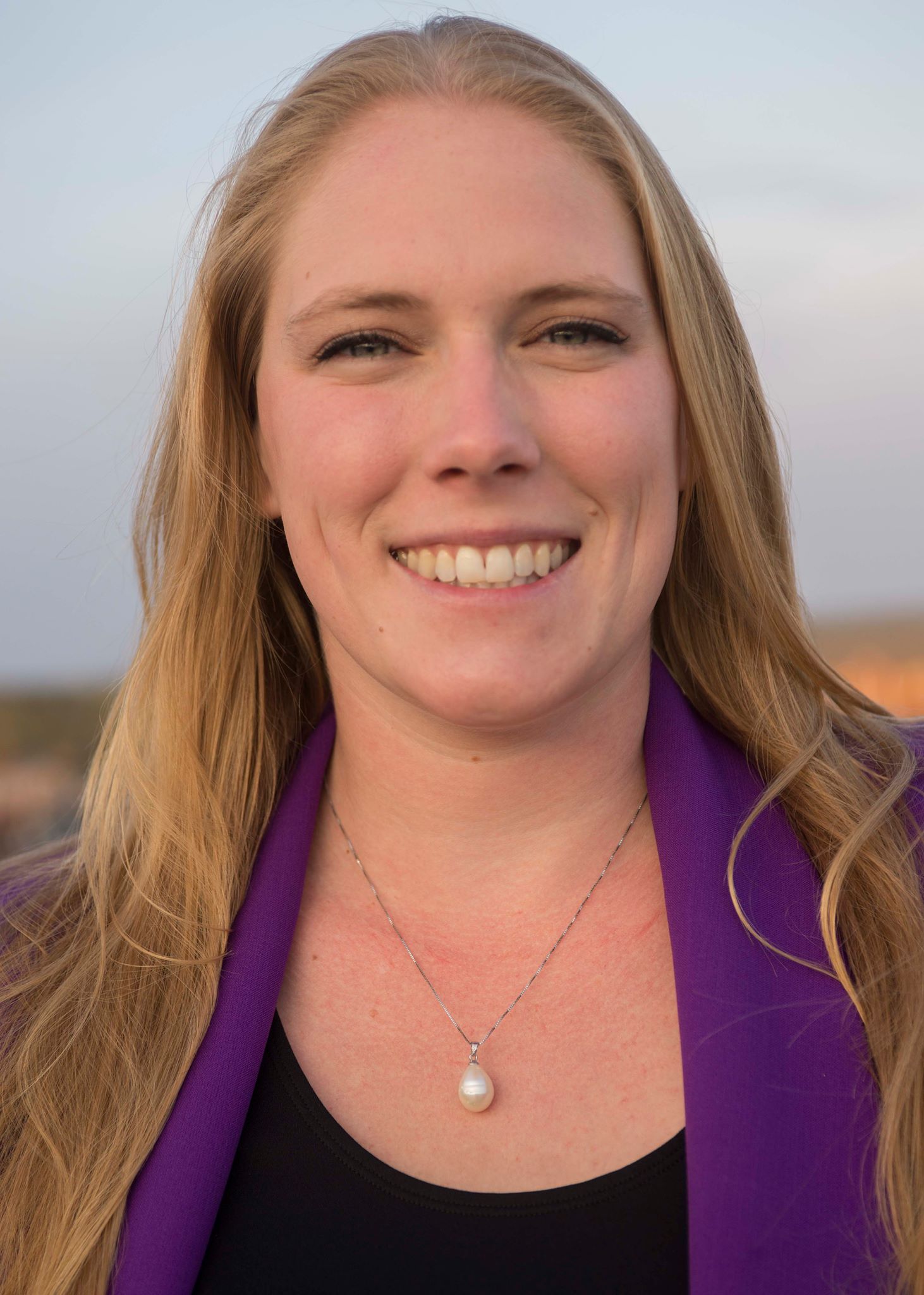
Courtney Wittekind, Assistant Professor
Dr. Wittekind is a political anthropologist and scholar of science, technology, and society with ongoing research in Myanmar, Thailand, and the United States. Her research investigates emergent forms of inequality propelled by three global transformations: uneven urbanization, the growth of speculative real estate investment, and the rapid expansion of physical and digital infrastructures. Her first book centers on an ambitious plan to build a 20,000-acre “new city” on the outskirts of Yangon, Myanmar, and describes how this plan thrust residents of the project area into the center of a volatile land market—opening avenues for vast profit if also crushing catastrophe. At Purdue, she teaches courses on ethnographic methods, urbanization and agrarian change, and co-leads a multimodal anthropology lab with Dr. Dada Dacot.
